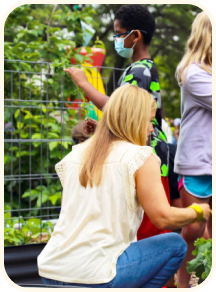Tips for Growing Raspberry Bushes
Raspberries are easy to grow and very rewarding, but they do need some special care. Planting your raspberry bushes can be as simple as digging holes in the ground and setting them into place. These berries will thrive if you provide them with plenty of sunlight and water—and no major pests or diseases! If you have space in your yard or garden, consider growing raspberries yourself; they're delicious! However, despite their ease, there are a few things you should keep in mind about raspberries…

Make sure you have the right setup for your raspberry bush!
Before you plant your raspberries, consider how much room they need and how much space you have to give them.
Raspberries can grow up to twenty feet in width, though the average is about ten feet. If you're planting more than one variety of raspberry, be sure their mature sizes don't overlap too much. As with most fruit trees and bushes, raspberries need a good amount of sunlight to thrive—a minimum of six hours per day is best. Raspberries also like moderate temperatures during the winter months (50-60 degrees Fahrenheit), but should be protected from cold winds during this time.
As with many fruit-bearing plants, raspberries do best in sunny areas that don't get too much wind.
Raspberries are a fruit-bearing perennial. As with many fruit-bearing plants, raspberries do best in sunny areas that don't get too much wind. This is because they rely on sunlight to photosynthesize, which means they need the sun to create their own food through photosynthesis. Wind can damage the fruit and leaves of your raspberry plant, so if you have an area that gets a lot of wind, consider planting it in a sheltered spot instead.
There are several types of raspberry varieties, and each has different benefits and disadvantages.
Raspberries are divided into two main categories: summer-bearing and fall-bearing. Summer-bearing raspberries produce fruit in the summer, while fall-bearing raspberries yield fruit in the fall.
Raspberry varieties differ from each other in many ways, including flavor and color of the berries, size of plant and yield, hardiness and disease resistance (to name just a few). If you're interested in growing your own raspberries for food or as an ornamental plant in your garden, here are some things to consider when choosing which type is right for you:
You can buy raspberries as either bare-root or containerized plants, with each having its own pros and cons.
- Bare-root raspberries are dormant plants that have been dug up from their original location, wrapped in burlap, and shipped to you. Because they’re dormant (i.e., not actively growing), they’ll need some time to acclimate when you receive them.
- Containerized raspberries are planted in pots of soil and shipped directly to your door. They might already be growing by the time you get them! This can be great if you want a more immediate impact from your new plants—but it also means that they may not be as hardy or well-adapted to your climate zone as those grown from seedlings at a local nursery would be.

Raspberries need lots of water, especially when temperatures rise and the soil dries out quickly.
Raspberries are not drought tolerant, and their roots can't thrive in dry soil. When temperatures rise and the soil dries out quickly, they need lots of water to stay healthy.
Raspberries also like moist soil, but not soggy soil! Waterlogged conditions lead to root rot—a deadly bacterial infection that can kill your plants within days if left untreated. The best way to prevent this is by watering raspberries regularly with a drip irrigation system or by hand-watering them every day during dry weather.
You should plant your raspberry plants in the fall or spring, as this gives them enough time to establish roots before winter comes around again (and remember: these are perennials!). To speed up their growth and increase yields, it's best to plant at least one other fruit tree or shrub nearby if possible; these will provide extra nutrients for your berries to draw from when they're younger!

Growing raspberries is one of the easiest fruit plants to grow in your garden. They're perennial, so they'll be around for years, and they need very little maintenance. Just plant them in a sunny area with well-drained soil and keep them fed with water throughout the growing season. You can even use old coffee grounds for fertilizer (or compost if you have it available).





















